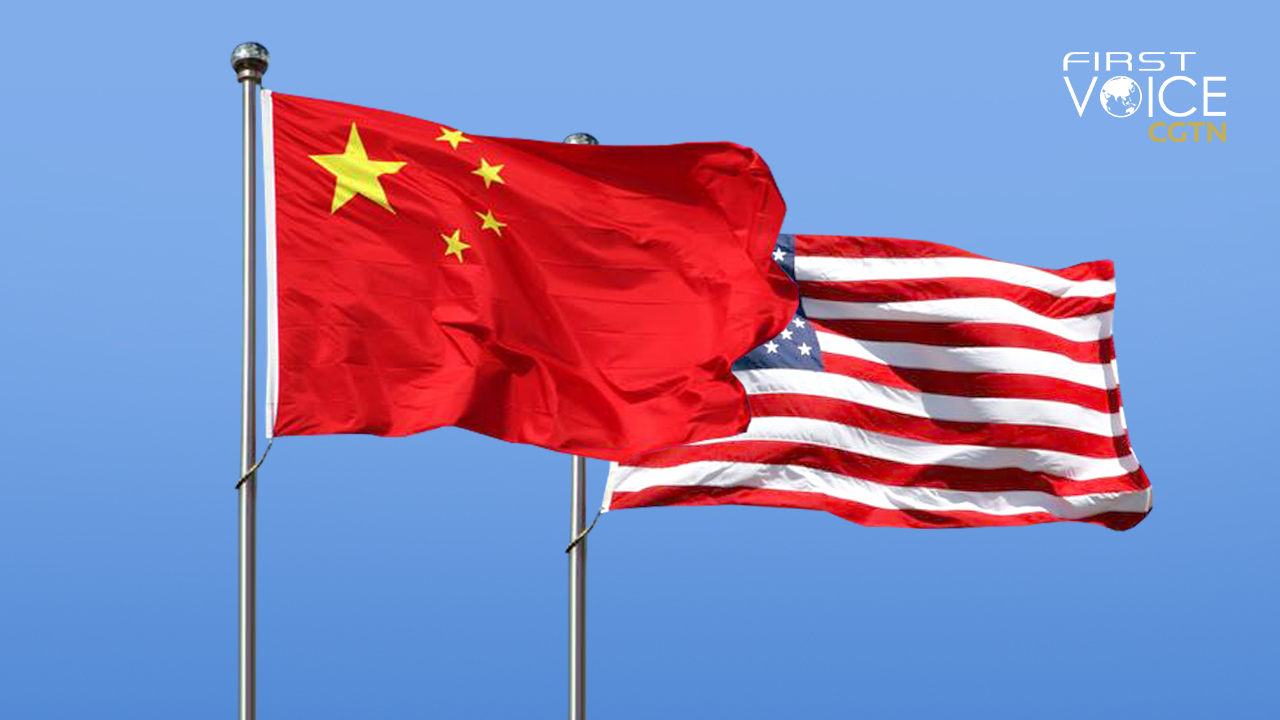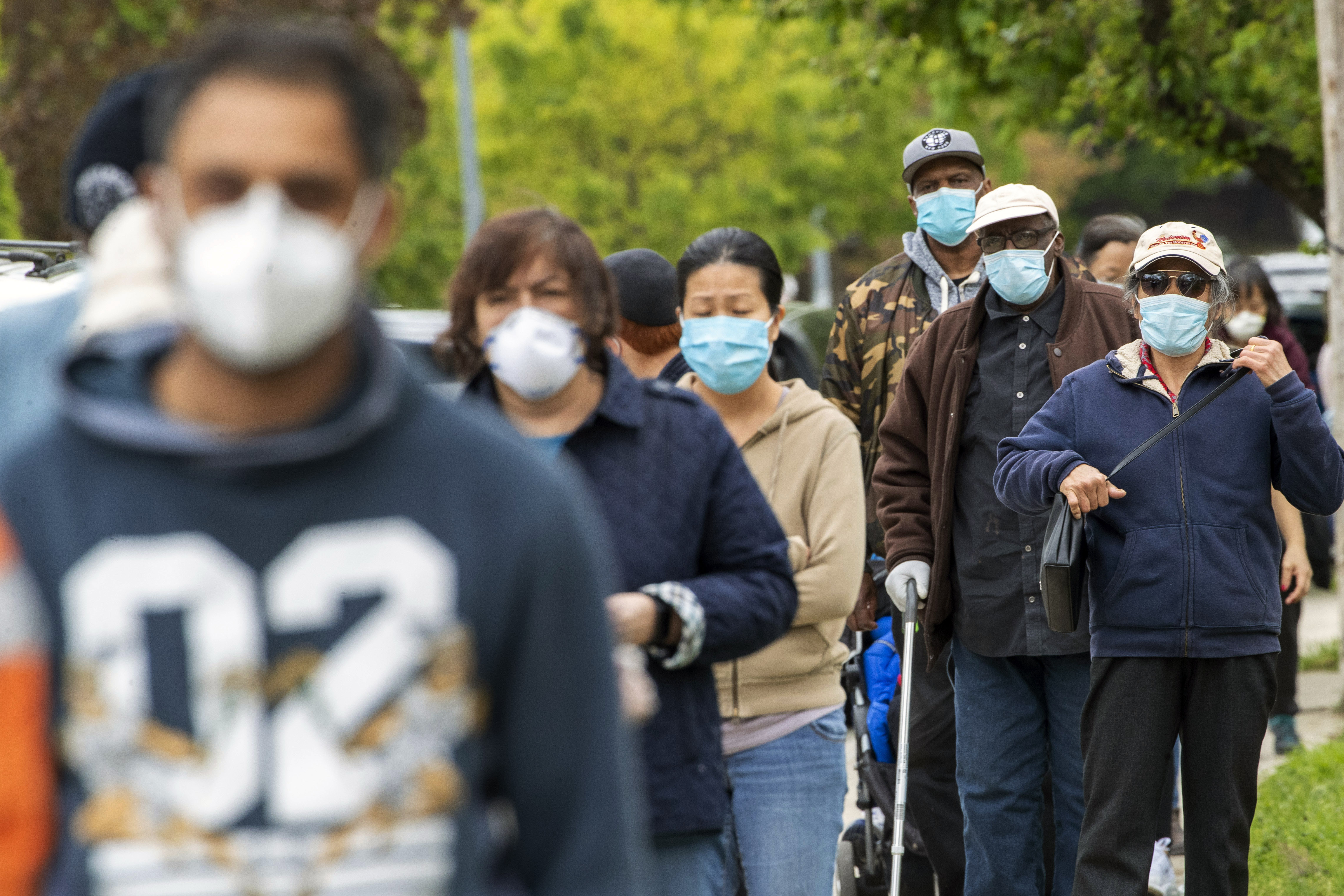
Editor's note: On May 29, U.S. President Donald Trump held a press conference at the White House, laying out his administration's aggressive China policy. This is part II of CGTN First Voice's analysis on the policy he proposed. CGTN's First Voice provides instant commentary on breaking stories. The daily column clarifies emerging issues and better defines the news agenda, offering a Chinese perspective on the latest global events.
Canceling certain Chinese students' visas
The idea of barring certain Chinese students from attending U.S. universities has been floated for a while. The argument gained its prominence under the constant preaching of Senator Tom Cotton, who believes that Chinese students should study "Shakespeare and the Federalist Papers" rather than STEM (Science, Technology, Engineering, and Math) in the United States. It is based on the idea that the Chinese government monitors these students and, through them, infiltrates sensitive technological sectors.
Mary Gallagher, director of the Lieberthal-Rogel Center for Chinese Studies at the University of Michigan, said on Twitter that such a policy would be "counterproductive and ineffective" and "further lower the reputation of American universities among Chinese students and parents."
Besides, shutting off or making Chinese students feel unsafe in the U.S. could result in financial harm to U.S. universities themselves. According to BBC's report, international students contributed to 28 percent of tuition fees to public universities in the U.S., and Chinese students make up one-third of all international students. Between 2017 and 2018, Chinese students and families contributed with 13 billion U.S. dollars to the U.S. economy.
And COVID-19 has just made this source all the most important. The pandemic has forced many colleges to shut down their campuses and thrown confusion into the admission process. Dr. Mansur Khamitov at Nanyang Technological University told Forbes that there are already predictions about small institutions having to close or merge and large institutions having to reduce faculty and staff numbers. Dr. Khamitov said that employees at the University of Arizona are facing temporary pay cuts and furloughs, and they are not alone.
Even if the targeted group of students is those related to "military-civil fusion strategy," the hostility towards Chinese students could have a broader impact that turns away other intended Chinese students. At a time of intense political conflict, is it wise to cut cultural ties?

Residents line up for free face masks the New York City Department of Parks & Recreation staff distributes at the Mauro playground, May 5, 2020. /AP
Residents line up for free face masks the New York City Department of Parks & Recreation staff distributes at the Mauro playground, May 5, 2020. /AP
Picking on a powerful competitor while his political fortune falls apart
Prior to Trump's press conference, two important events occurred in the United States. First, on May 25, 46-year-old African-American restaurant worker George Floyd in Minnesota died at the hand of a law enforcement officer. The death quickly sparked protests across the U.S., leading to a police precinct being taken over and burnt. As of the moment this article is being written, the protesters just had their fourth night of protest. A black CNN reporter was caught by the local authority when he was covering the protests live on air and then released soon after the act instigated more public outcry. And in Atlanta, windows were broken at a CNN building. Minnesota activated the National Guard to quell the unrest. Amidst all this, President Trump threatened to intervene violently. "When the looting starts, the shooting starts," these were his words.
Second, on May 27, COVID-19 fatalities in the U.S. surpassed the 100,000 mark. Trump has already been bashed by Democrats for boggling the COVID-19 response for months, and has seen his recent approval rating plunge from his post-impeachment bump to 42 percent, with 57 percent disapproving his performance, according to the right-wing polling firm Rasmussen. His rival in the Presidential Election, former Vice President Joe Biden, is now leading by 11 points. And a recent study published on University of Virginia's Center for Politics shows that Joe Biden has a "consistent advantage" in 13 swing states. This on top of the fact that Trump's plan to hold the Republican Convention in North Carolina has run into a roadblock over coronavirus social-distancing measures.
One has to suspect that this announcement this Friday is a show of force on the international stage, but also for the domestic audience. "All politics is local" is a popular phrase in American politics. And what's more political and local than a Presidential Election? It isn't news for some leaders to try to look tough abroad so to sweep up votes back at home. This could be all the more probable with this particular president, whose handling of coronavirus has drawn wide criticism and whose eight percent showing amongst African American in the 2016 election don't exactly grant him the mandate to fix racial divide at home.
Where are we going?
All this begs the question: Where are we going? A leader under siege within and lashing out on the international stage doesn't spell certainty and assurance. And if the volatility is going to persist throughout this election year, what would that do to the China-U.S. relationship, which is already on tenuous grounds with distrust runs high on both sides?
Wang Yong, professor at the School of International Studies at the Peking University, believes that China and the U.S. could be sailing on a collision course as the Presidential Election heats up. Both parties would be bashing China to gain more political advantage and popular consent. Nationalists are Trump's most ardent supporters and his base for reelection. By turning his attention onto China, Wang believes Trump turns the country's attention away from the domestic problem caused by COVID-19 and the racial divide and rally his supporters behind him during the election.
However, Wang also points out that U.S.' business circle prefers the U.S. to have a steady relationship with China. And it is crucial to keep calm in the midst of all the rhetoric. Now, the question is, can we? Can the world keep calm?
Scriptwriter: Huang Jiyuan
The China-U.S. saga: Where are we heading toward? Part I
(If you want to contribute and have specific expertise, please contact us at opinions@cgtn.com.)